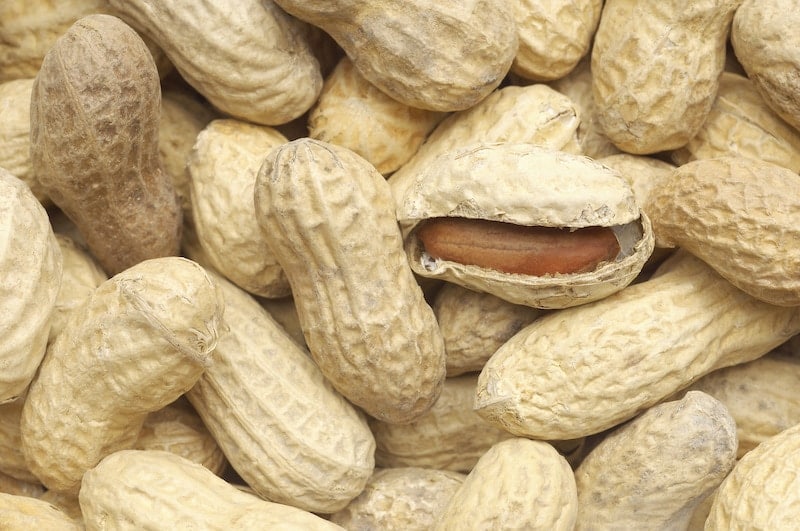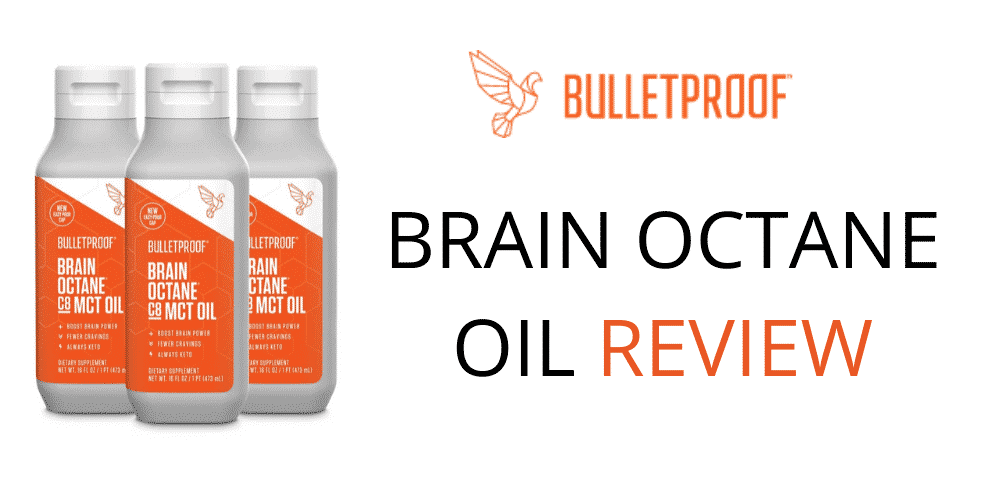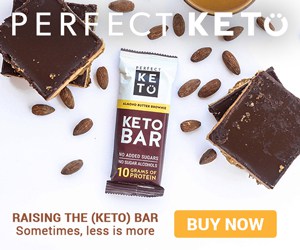There are plenty of peanut butter recipes on keto, so naturally one would think that makes peanut oil keto friendly.
Unfortunately, that’s not the case. Recent research has proven peanut oil to cause oxidative stress. Oxidative stress is linked to numerous health conditions, including cancer.
The keto diet is all about eating fats, specifically the good ones. With a diet plan where about 80% of the calories come from fats, it’s usually the nutrient you have to focus on the most.
Because peanut oil is rich in monounsaturated and polyunsaturated fatty acids, the American Heart Association recommends it, for the whole population, as a healthier choice oil, in comparison to others.
In this article, I take an in depth look at peanut oil, when you could use it, but mostly, why you should avoid it.
What is Peanut Oil?
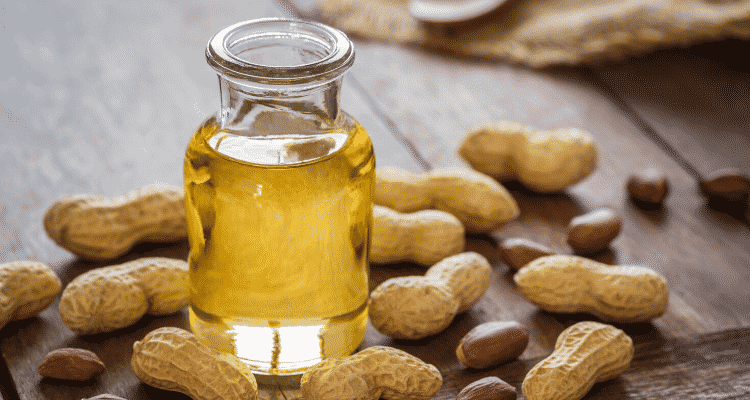
Peanut or groundnut oil is a well-known vegetable oil used all over the world. The edible seeds of the plants of peanut are crushed into oil.
The oil is then processed and refined to make it into an edible form. Peanut oil has a mild to medium nutty flavor, which not only makes food more tempting but also gives it a crunchy texture.
Being rich in monounsaturated fat with a high smoke point makes it ideal for high-flame cooking and frying. It is one of the cheapest cooking oils, hence it is popularly known for deep frying.
Though we can certainly use peanut oil at low heat or pour it into salads, we can definitely use it for frying since it is an economical replacement for animal fats.
Is Peanut Oil Good or Bad For Keto?
It is generally known that peanut oil lessens oxidative stress since vitamin E helps combat free radical damage to the body.
But it has also been found that when you cook peanut oil, it starts oxidizing, which leads to the release of additional free radicals.
You can enjoy the goodness of vitamin E through cold-pressed, unrefined peanut oil in your diet, but don’t forget that vitamin E gets oxidized quickly.
This means increased metabolic issues, enhanced risk of obesity, and increased risk of heart diseases.
Peanut oil is high in omega 6 fats which shrug off the ratio of omega 3 to omega 6 fatty acids. Ideally, it is recommended that your fatty acids ratio remains 1:1 or at least 4:1 (omega 6s to omega 3s.)
High oxidation rates and omega 6 molecule content cause oxidative stress. This, in result, can lead to obesity and other health issues such as heart problems, cancer, and diabetes.
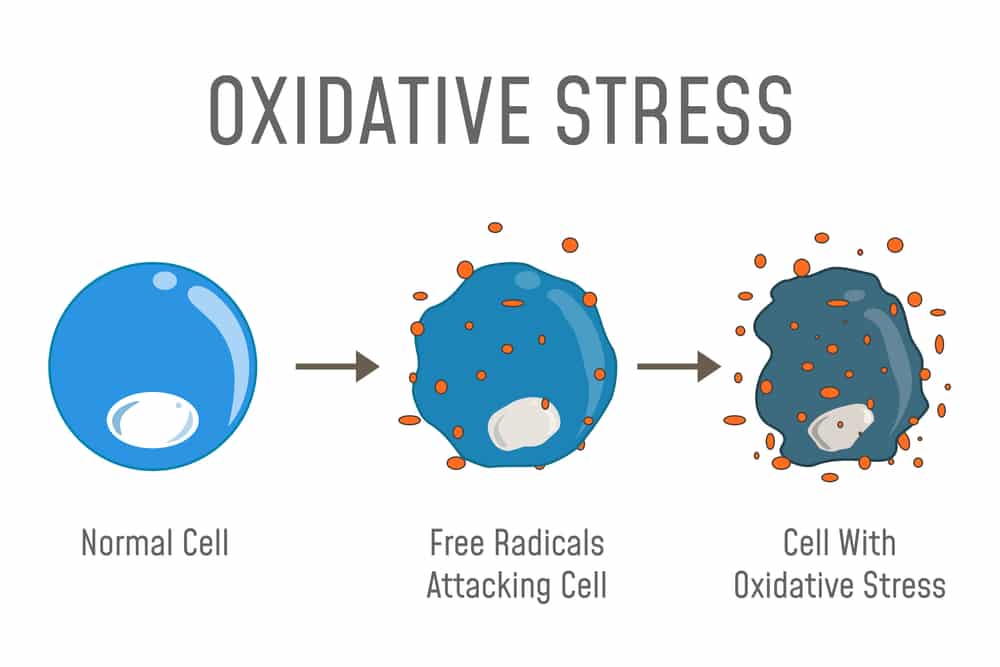
Almost every chronic disease is linked to the release of oxidative stress which is fueled by ROS – Reactive Oxygen Species.
Then why not choose avocado oil or palm oil as an alternative to peanut oil if you need high vitamin E fats?
Also, your LDL cholesterol levels can get lowered by peanut oil. Studies have shown that:
- LDL cholesterol is not efficient in determining the cause of cardiovascular diseases; LDL particle number and triglyceride to HDL ratio can be better interpreters of such health risks.
- Obesity increases CVD risk which is hard to avoid if your omega 6 to omega 3 fatty acids ratio is imbalanced due to high omega 6 PUFA (Polyunsaturated Fatty Acids) oils intake.
- When you cook your food with peanut oil (which is highly linoleic) you are actually consuming oxidized lipids that are awful for your heart. When you heat up linoleic acids during frying, you are oxidizing those lipids.
- When those oxidized lipids are digested, they get transformed into lipoproteins which carry cholesterol in your bloodstream.
- Additionally, oxidized lipoprotein (LDL) can penetrate the arterial wall and lead to an inflammatory immune response causing atherosclerotic plaques to develop. Those oxidized lipids once consumed not only cause more inflammation by interacting with the free radicals in your blood but also lead to obesity and heart issues.
- There are many factors of obesity issues in people; however, two well-known contributors to obesity are high carb intake and a high-PUFA food regimen. PUFAs like linoleic acid elevate your omega 6 to omega 3 ratios possibly causing your body to develop obesity.
- Another omega 6 PUFA is arachidonic acid which is also a key contributor to obesity. Linoleic acid consumption raises your arachidonic levels. This is why many Americans have a prevailing problem of obesity since they tend to eat too many linoleic-rich foods.
If you aim to prevent or lessen obesity issues, to lose weight, and to stay in shape, you need to stop consuming high-linoleic peanut oil.
What Are Some Better Peanut Oil Substitutes?
Sesame Oil
This healthy dose of fats is power-packed with all-natural and necessary heart-favorable fatty acids. As a bonus, it possesses a nut-like aroma with a smooth and rich flavor.
This oil carries a medium to the high smoke point, which means it can bear quite high heat before it begins to burn or smoke. The nutrient content degrades when the oil gets to its burning point.
It is crucial that you are well aware of the proper use and smoke point of each type of oil to ensure that your body receives all the good nutrients from your food including the oil you used to prepare it. Such information is substantial in order to avoid any inflammation as some degraded oils can trigger free radicals in your blood stream.
Use nutritious sesame oil to shallow fry or sauté your keto-friendly foods, or pour it into your salads as part of home-made sauces and dressings. What a marvelous way to load up your food with healthy nutrients and good fats!
Avocado Oil
Avocado oil is a versatile, mild vegetable oil containing a high content of monounsaturated fatty acids and antioxidants. This oil can be a healthy choice for you since it is naturally filled with the goodness of vitamins, A, D, and E, potassium, and fatty acids.
It carries a fair amount of good proteins necessary for healthy muscles. Not only that, avocado oil is famous for enhancing your body’s absorption of nutrients as well as supporting good cholesterol production.
With its unique high burning point, this oil is an ideal choice for almost every kind of cooking style whether you decide on frying, sautéing, searing, roasting, or grilling your food. Furthermore, you can opt for cold-cocking ideas like using it in the form of dips, marinades, or even dressings for your yummy salads. That’s amazing, right?
Coconut Oil
Coconut oil is one of the most recommended keto-favorable cooking oils with a neutral to sweet flavor. This butter-like oil is rich in saturated fatty acids and is extremely healthy for your overall health.
The medium-chain triglycerides present in coconut oil speed up your body’s metabolic rate and encourage ketosis in reasonable doses.
Coconut oil is a perfect choice for roasting, sautéing, baking, and frying since it carries a relatively higher burning point. You can also include coconut oil in your keto diet by using it in its raw form or even as a substitute for butter.
Related Reading:
- What is the Difference Between MCT Oil and Coconut Oil?
- Why Does MCT Oil Cause Diarrhea? The EXPLOSIVE TRUTH!
Extra Virgin Olive Oil
Extra virgin olive oil is an unrefined and cold-pressed oil that contains the essential nutrients, flavor, and all of nature’s goodness in it when included in your ketogenic diet. Additionally, this oil is heart-healthy since it is rich in monounsaturated fats and has a hearty amount of antioxidants.
Extra virgin olive oil is known to carry a low smoke point, and that’s the reason why it is widely incorporated in the keto diet in the form of salads, marinades, dressings, and keto-favorable snacks. It is recommended to not use this oil for high-flame cooking or even frying.
Recommended Steps
Use the following tips in order to discover the perfect cooking oil for you instead of opting for PUFAs:
- Vegetable and seed oils are classified as heat-stable oils. However, they actually get oxidized quite easily when put on high heat. That is why you should choose true stable cooking oils like the ones mentioned above. They are not only rich in saturated and monounsaturated fats, but also their lipids will not oxidize.
- Choose healthy keto fats always.
- Don’t mind asking the restaurant about the cooking oil they are using.
- Recall O6: O3 ratio. This is a link to high obesity, so improve it by having fewer O6s and more O3s.
Related Questions
What kind of cooking oils should we avoid when on a ketogenic diet?
Avoid all the oils which undergo immense processing and carry processed trans fats and polyunsaturated fatty acids. PUFA must be avoided as much as possible. These oils are terrible for your health by damaging your heart and increasing your chances of developing cancer and inflammation in your body.
Which edible oils are not recommended during keto dieting?
Generally, many seed and vegetable oils like peanut oil, canola oil, soybean oil, cottonseed oil, sunflower oil, corn oil, safflower oil, and grapeseed oil must be avoided.
Final Words
You may find peanut oil quite delicious especially when you crave fried foods because of its unique nutty flavor. However, you cannot afford to fall victim to dreadful health issues in the name of flavor.
When peanut oil is cooked, it produces oxidized lipids that are the well-known contributors to heart diseases. And having peanut oil simply means you are consuming linoleic acid which develops obesity. Be sure to choose healthy fat alternatives like extra virgin olive oil, avocado oil, or coconut oil to support a well-balanced keto diet and stay healthy!

